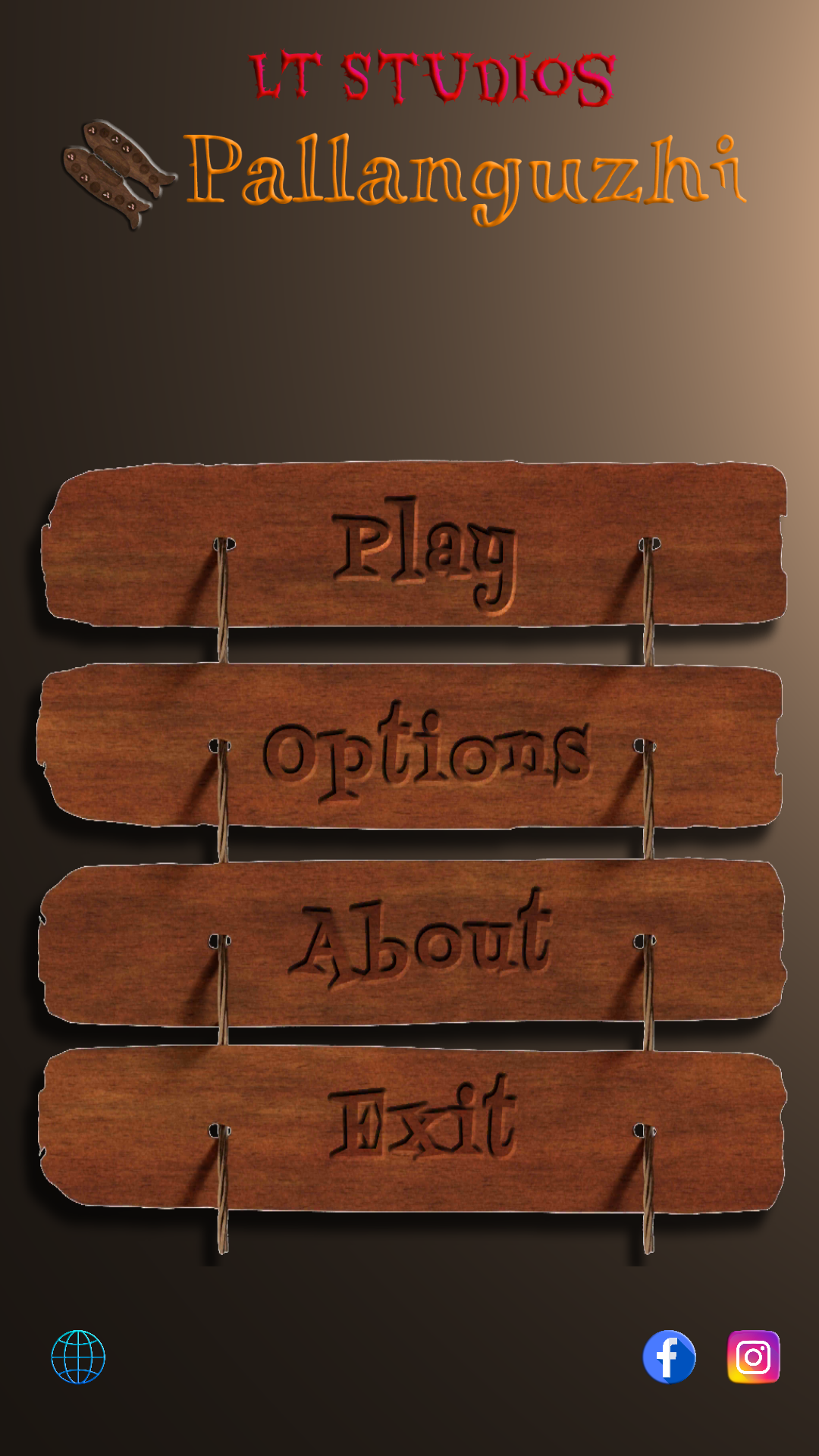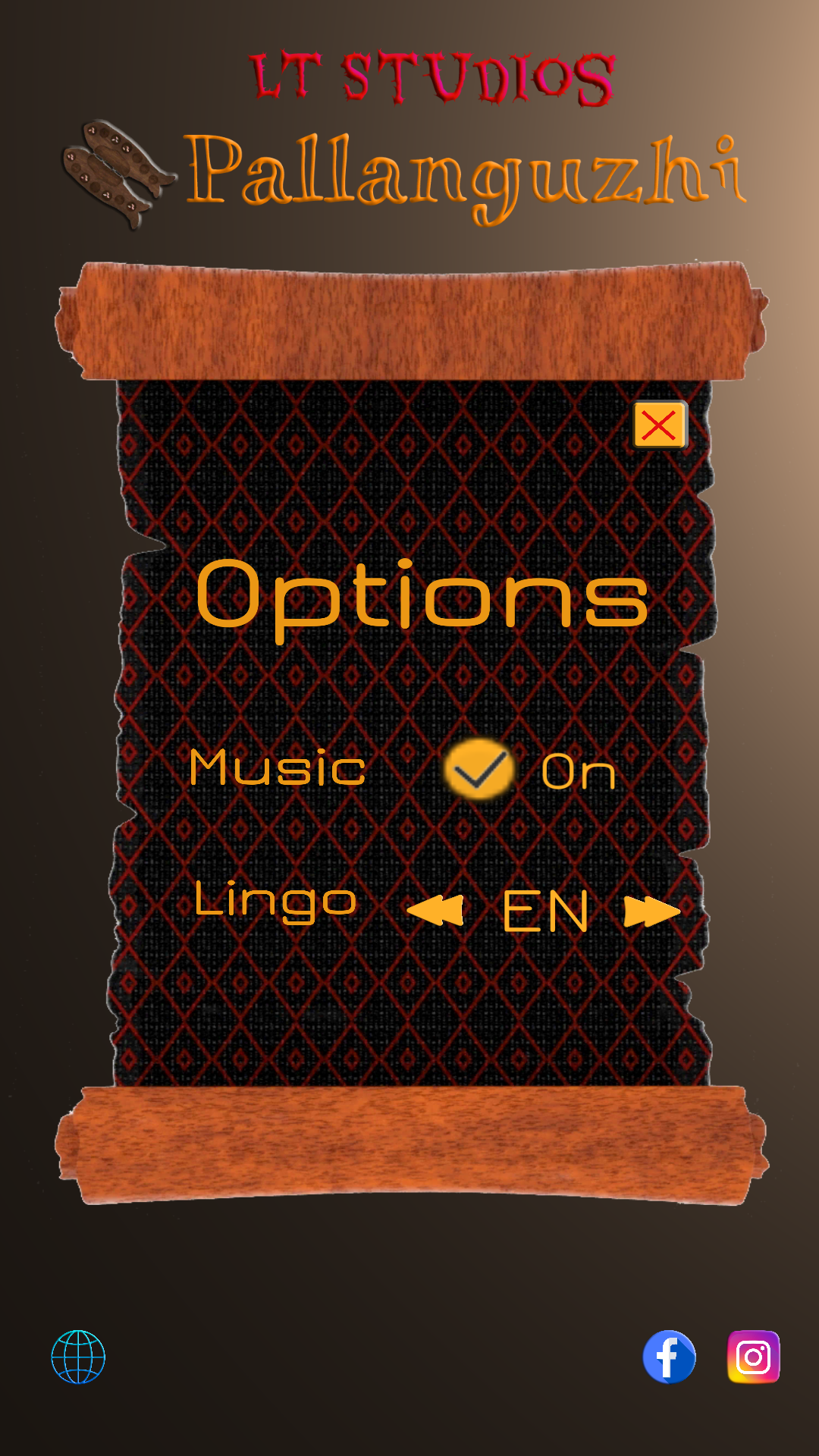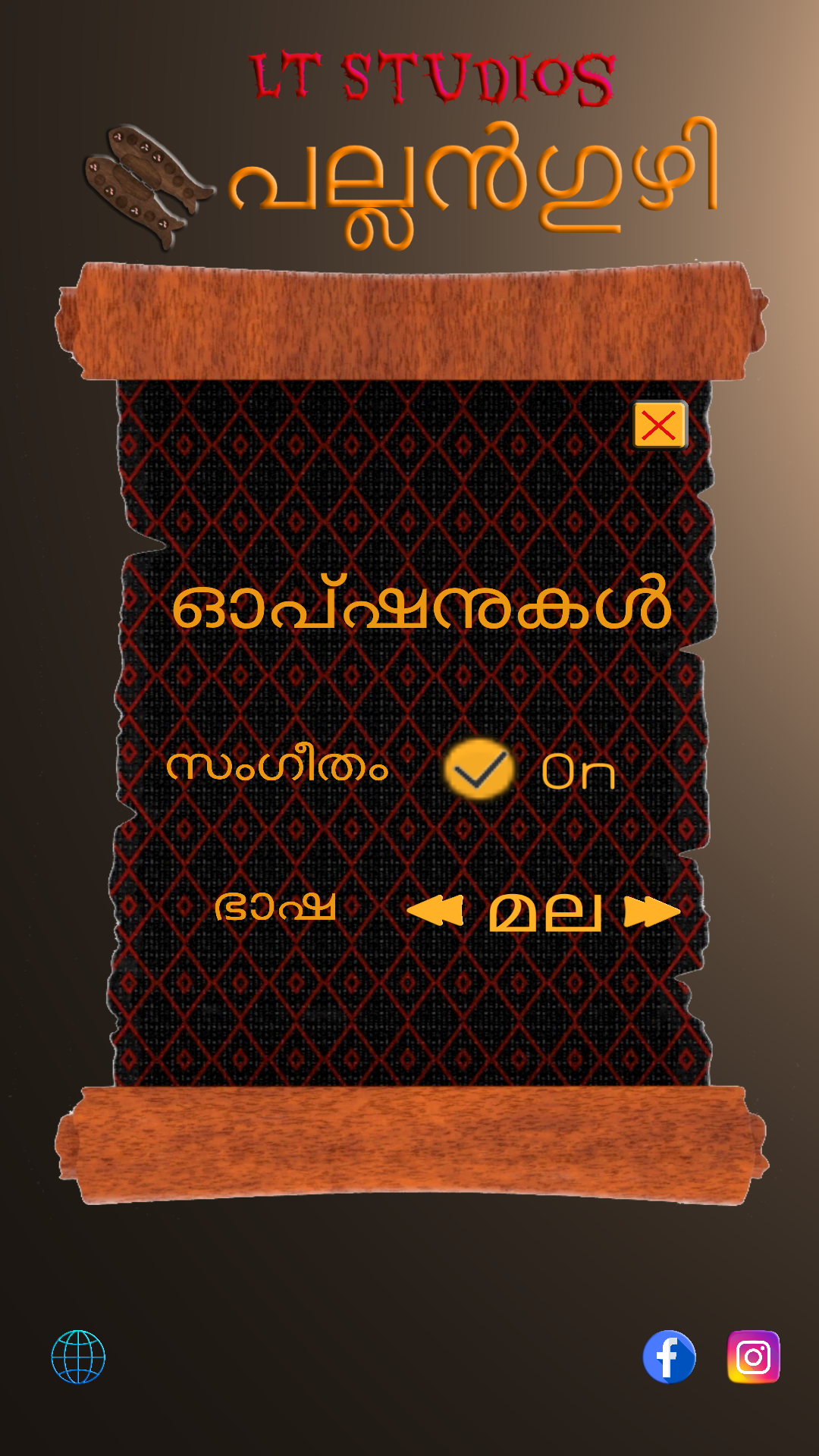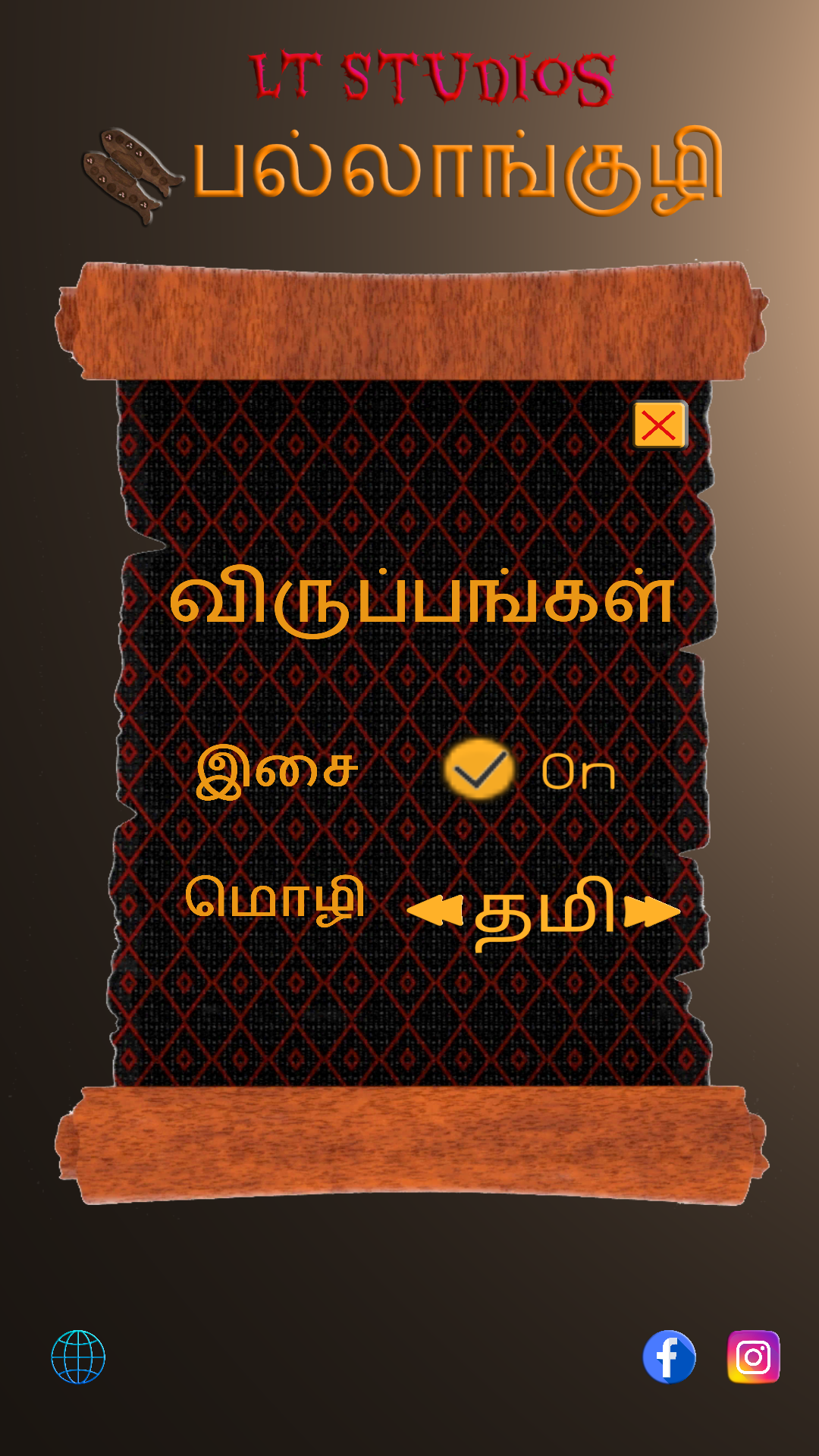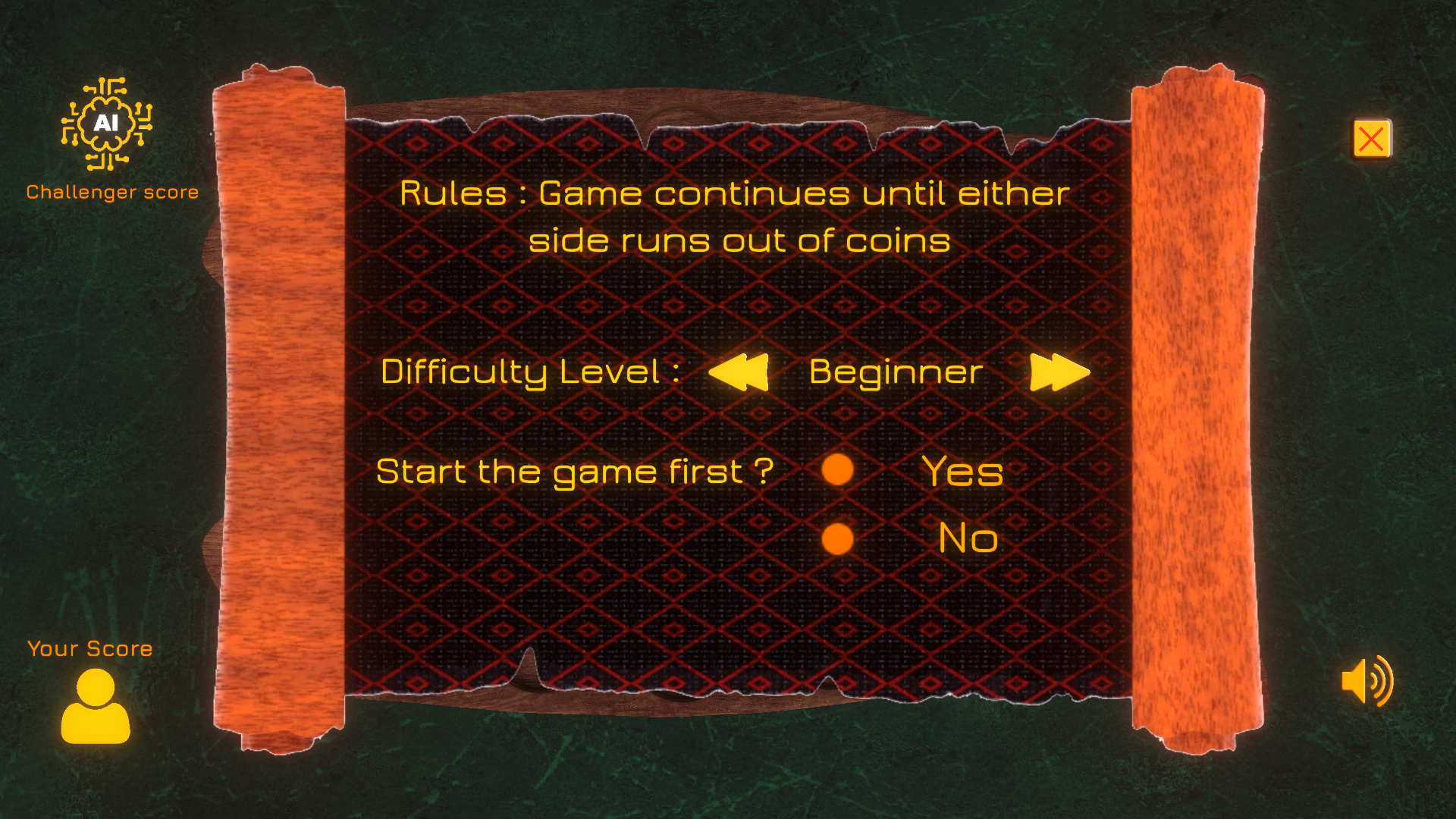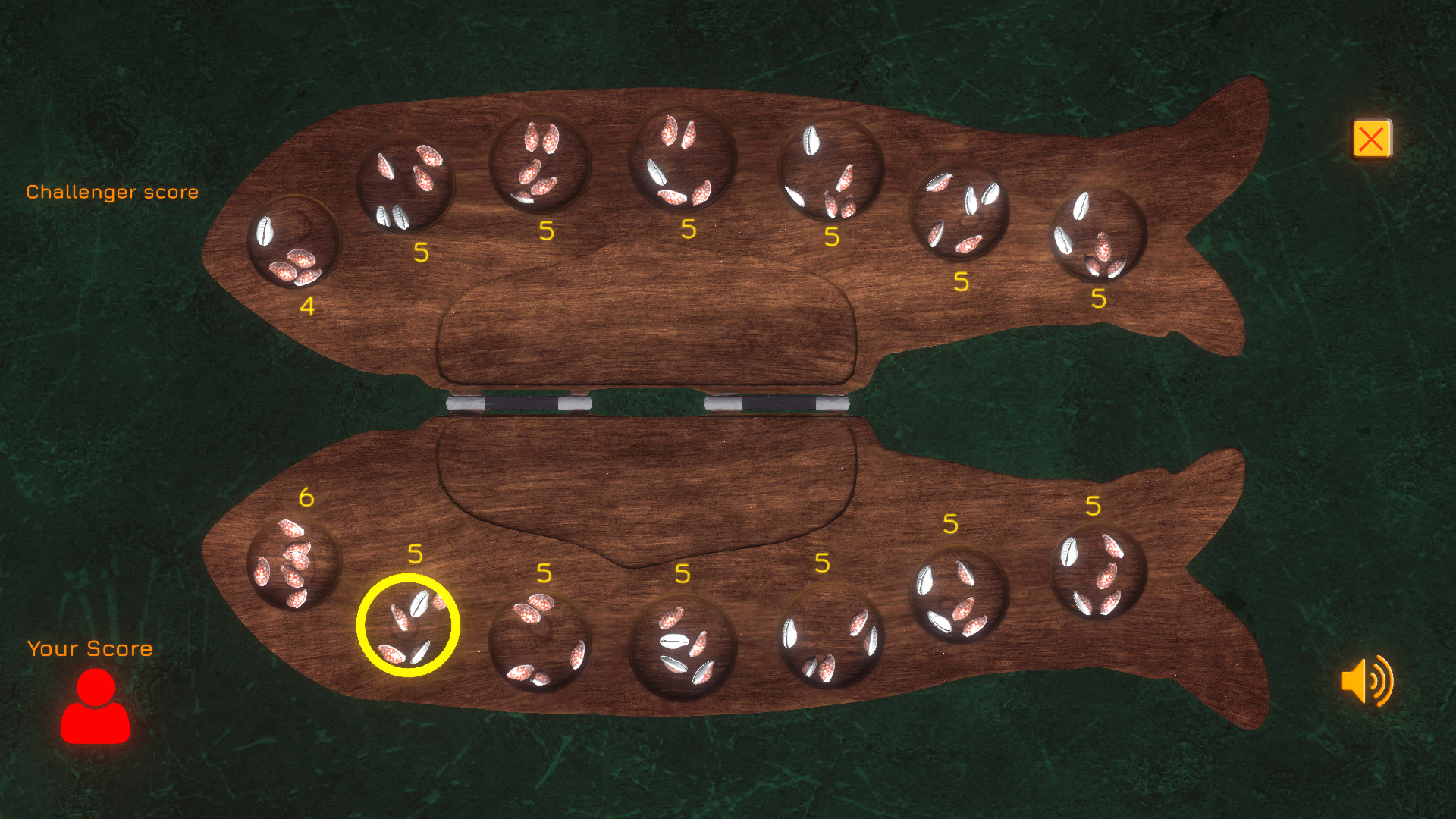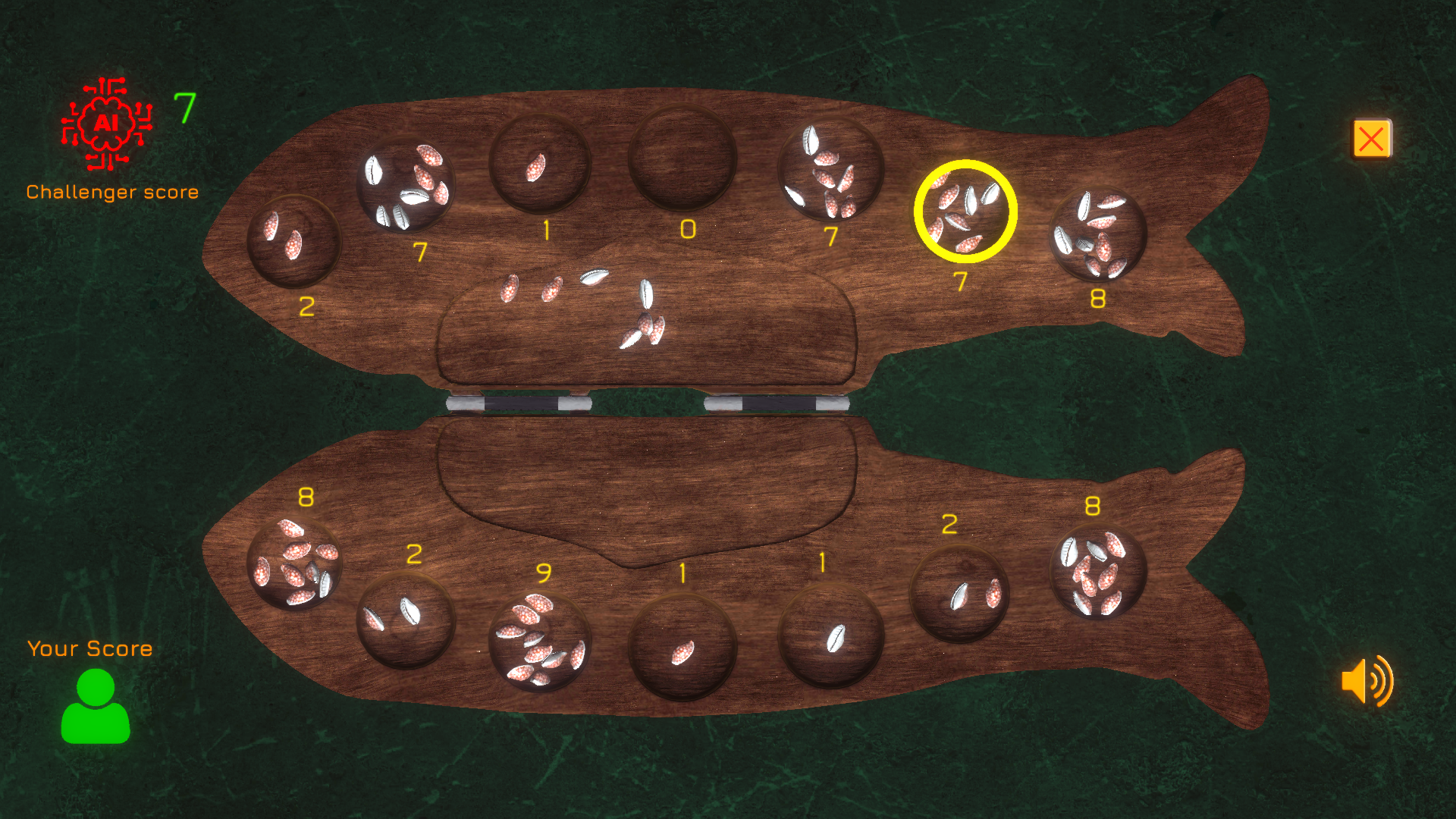
Pallanguzhi - Android Mobile Game
A Unity-based mobile game was developed for my indie game studio, LostThought Studios. The entire game, from concept to release, was completed in a span of 3 months, while I was simultaneously working on my university master's degree thesis. Despite its success during the initial release, the game is now defunct and has been removed from the Google Play Store due to constant policy changes that prevented me from updating certain aspects. However, more detailed information can be found in the following photos and project description
Images from the Mobile Game
Tools & Softwares Used
- 3D Modeling - Autodesk Maya 2020.
- 3D Sculpting - Autodesk Mudbox 2020.
- Texture Painting - Substance Painter.
- Game & Concept Development - Unity Game Engine
- UI & Texture Editing - Figma, Krita and PhotoPea.
- Testing and Benchmarking - Android Studio & Bluestacks.
Team Information
- Rahul - Development using Unity Engine and debugging on Android Studio and Bluestacks.
Project Description
Pallankuzhi is played on a rectangular board with 2 rows and 7 columns. There are a total of 14 cups and 146 counters. For the counters in the game, seeds, shells, small stones can be used. The game ends when one of the players captures all the shells/holes of the opponent. On his turn a player lifts the seeds from any of his holes and, going counter-clockwise, distributes one seed into the following holes. After a player has dropped his last seed, he takes the seeds from the next hole and distributes accordingly. If the last seed falls into a hole that is empty, then the seeds in the hole following the empty hole are captured by the player and placed into his store.When the first round is over players take the coins that are stored in their counters and fill as many of their holes as possible with the coins/counters. 5 coins are required for to have the each holes filled, The winner will have a surplus of counters which are kept in his store. The loser of the first round will be unable to fill all of his holes. These unfilled holes are marked as "rubbish holes." In the next round play continues as before, but without the rubbish holes being included.
During the game if a player has enough counters to fill any of his rubbish holes back up their status is removed and they are again used during play. The game is over when a player is unable to fill any cups with 5 counters at the end of a round.


